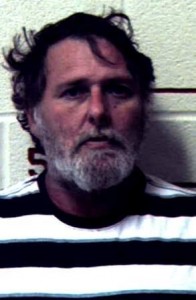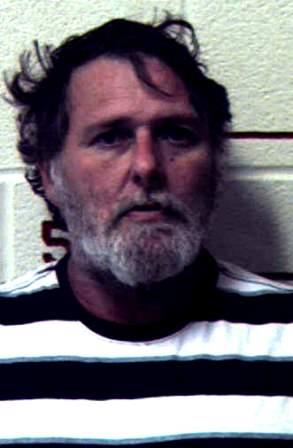
CLEARFIELD – A Clearfield man accused of having a methamphetamine lab in his apartment pleaded guilty Tuesday during plea and sentencing court.
Mark Charles Hackett, 54, currently an inmate of state prison, pleaded guilty before President Judge Fredric J. Ammerman to criminal attempt/manufacture of a controlled substance, operating a methamphetamine lab and deposits, stores or disposes of chemical waste.
He was sentenced to a total of one to 10 years in state prison. This sentence will run consecutive to any sentence he receives from a state parole revocation.
In October of 2014, the other apartments in Hackett’s building were evacuated by members of the Clearfield Borough police, the Lawrence Township police, the Clearfield Fire Department, Clearfield Emergency Medical Services and the Clearfield County Emergency Management Agency.
Seven nearby residences were also evacuated while police investigated the scene due to the dangers of manufacturing the drug, according to previously published reports.
According to testimony at the preliminary hearing, Keith Summerson, a state parole agent, and an agent with the Pennsylvania Office of Attorney General, Bureau of Narcotics, Investigation and Drug Control, received information from a confidential informant who said Hackett was cooking methamphetamine at his home. He contacted his supervisor and received permission to search Hackett’s residence for evidence of a violation.
Summerson went with Officer Jacob Rhymestine of the Clearfield Borough police to Hackett’s residence. He testified that a female answered the door while Hackett was on the couch. Hackett was handcuffed and placed in the kitchen. Rhymestine watched him while Summerson searched the apartment. The female told him there was a backpack hidden in the kitchen ceiling tiles.
When he checked the ceiling Summerson pushed the tiles and could see a black bag. Summerson asked another agent, Lon Miller, who had arrived on scene to help him. Miller got up on a table, reached up and pulled down the bag. Inside it they found a bottle with battery shavings, a bottle with a white substance, a Coleman fuel canister and baggies with white pellets.
Because these items are precursors for cooking methamphetamines, the search was stopped. Summerson asked Rhymestine to get a search warrant.
Rhymestine verified much of Summerson’s story during his testimony. However, he was unable to confirm which of the agents actually pulled the bag from the ceiling. Rhymestine explained that his focus was on watching Hackett and not the search.
At Summerson’s request, Rhymestine said he went back to the police station to speak to officials about getting a search warrant for the apartment. When he returned to the building other officers had secured and evacuated it. Rhymestine provided security outside for the rest of the evening.
An agent with the AG’s Bureau of Narcotics, Investigation and Drug Control was called in to assist with the investigation. The agent testified that he interviewed Hackett, who agreed to speak with him after he was read his rights. Hackett told him he tried to manufacture methamphetamine in a soda bottle but it failed. Hackett agreed to a search and signed a consent to search form.
The agent said there were concerns with securing the apartment because of the volatile chemicals involved in the making of methamphetamine. The state police were notified and a response team sent to the area.
Chemists dressed in suits with respirators went into the residence to check for chemicals. Everything they found was taken to a crime lab in Harrisburg, the agent said.
A report from the lab concluded that several materials were found that are used to manufacture methamphetamines. Some of the residue indicated an effort to make methamphetamine had been successful.
The only defense witness was the informant. The CI testified that they had charges pending against them when they went to the police with information about Hackett’s intentions to make methamphetamine.
“I knew there was illegal activity happening (at Hackett’s apartment),” the CI said, adding that they knew this was “not right.”
Hackett had asked the informant to buy cold medicine that can only be purchased with an identity card at a pharmacy counter. This is used in the making of methamphetamine.
Attorney Gary Knaresboro, who was representing Hackett, asked the CI if they took photos of the ingredients for methamphetamine. The CI said yes and these photos were given to police.
The informant said a female showed them items in a bag in a closet and helped them take the pictures. At that time the items were in a garbage bag in a suitcase. Later these things were put in the backpack and hidden in the ceiling tiles.
During cross examination, District Attorney William A. Shaw Jr. asked what else the CI saw at the apartment. The informant said they saw a soda bottle that was burned. The informant said the female told them it had blown up.
Hackett’s previous drug charges include possession of a controlled substance with intent to deliver in two cases. He pleaded guilty in July of 2012 and was sentenced to serve nine months to five years in state prison. In July of 2005, he pleaded guilty to possession of a controlled substance and was sentenced to 60 days in jail and two years probation.



